The CoverBCCPerfect for fans of Jurassic Park and Jurassic World! Code Name Flood is the electrifying sequel to The Ark Plan, which School Library Journal praised by saying: “Nonstop action, marauding dinosaurs, and kids on the run: What’s not to like?” Last week, twelve-year-old Sky found a cryptic message from her dad, who mysteriously fled the safety of their underground compound five years ago. The note said the fate of the world depended on her going topside, to a lost world that’s ruled by dinosaurs. Today, after a treacherous journey through the wilderness, Sky and her friends have made it to their destination: Lake Michigan. There they discover a hidden underwater lab, and with the help of its scientists, Sky will finally learn the truth about her father’s secret mission. Tomorrow, it will be up to Sky and her friends to save humanity from the very edge of extinction. Readers who enjoy middle grade adventures by Brandon Mull and Rick Riordan will love this action-packed story, which takes the premise of Michael Crichton’s bestselling classic to a whole new level, envisioning a postapocalyptic future where cloned dinosaurs have taken over and the world’s only hope is one group of courageous kids. The InterviewBrock: How did you come up with the idea for this book or series? or What was your inspiration for writing this book or series?
Laura: While my inspiration for the entire series came from a visit to the New York Natural History Museum and their amazing dinosaur display, the idea for a large part of this book actually came from the New York Subway system. When I visited New York with my mom, I was amazed by the underground networks that crisscrossed and twisted underneath the city, and I wondered what it would look like if the human race had to live in those tunnels, instead of just using them to get from point A to point B. So when I was writing CODE NAME FLOOD, and I needed an East Compound, I put it in New York’s subway system. Brock: Tell us about the main characters? Who are they, what makes them unique. Laura: Sky, Todd, and Shawn are all back for book two, and I added a new character I think everyone is going to enjoy named Chaz. I don’t want to say too much about her and give away a big surprise in the story, but I think she is one of my favorite characters. She’s spunky and funny, and I think she is a great foil for Sky’s one-track determination, Todd’s humor, and Shawn’s seriousness. Brock: In three words what is this book about? Laura: Sea Monsters, Determination, Friendship Brock: Do you outline the entire book before starting, or do you write as you go and let the characters take control of the story? Laura: My character’s are the boss, I just show up for work every day and do what they tell me. Brock: How do you believe this story relates to the lives of readers? Laura: My readers are usually middle school age kids, and while they crave adventure and excitement, but a lot of times they aren’t quite ready for the real thing yet. My book is an edge-of-your seat thrill ride from page one, and my readers get to LIVE all that danger and excitement from the safety of their couch! Brock: What is your favorite genre to write for? Laura: Science fiction and fantasy will always have my heart; since those are the genres I most enjoy reading. Besides, there is something intoxicating about building worlds and creating something that only existed in your imagination up until it hits the page. Brock: How many books are planned for this series? Laura: This is the second and last book in the series. CODE NAME FLOOD wraps up the mysteries and questions that were started in Edge of Extinction-The Ark Plan. That being said, I’d love to write another one. The world I created for Sky and her friends is just too much fun, so never say never! Brock: Any certain research required for the book, or is it all from your imagination? Laura:While book one required quite a lot of dinosaur research, Code Name Flood required research of a slightly different variety. You many have noticed the rather fierce looking creatures on the cover, well, those AREN’T swimming dinosaurs. They are ancient aquatic marine reptiles. Which is a mouthful to say and an even bigger mouthful to incorporate seamlessly into a story. Despite that annoying technicality, the research on creatures like the kronosaurus and elasmosaurus was incredibly interesting. There is just something about sea monsters that sends a shiver up your spine. I’m not so sure my characters would agree, as I unceremoniously dumped them into a lake swarming with the creatures, but it makes for a fun read! Brock: Why did you choose to focus on a female protagonist? Laura: My narrator, Sky Mundy, is a girl, which is funny since EVERY other book I’ve ever written has been from a male perspective. Please don’t ask me why, since I have no idea. In fact, the next series I’m pitching is written with a boy protagonist. I guess part of it is that I was never a girly-girl. I always hung with the boys (I was the only girl invited to many a boy’s birthday party in grade school), and I loved sports and being outside. So I guess I have an easier time seeing the world that way. My solution with Sky was to make her a lot like who I was at that age. She came out a very focused and driven character because that’s who I was! Brock: Are you working on the next book in the series? Laura: As I mentioned before, the Edge of Extinction series is done for the moment, but I do have other things in the works! I’m not at liberty to mention any of them yet, but I think they are pretty great! No dinosaurs this time though, sorry! Brock: Do you plot or outline the entire series before you begin writing, or do your books take on lives of their own? Or is there a combination? Laura: I should outline, but I don’t. I’ve tried it, and it never works out. (I’ve never been very good at following directions!) I’m what you’d call a “pantser” which means that I “fly by the seat of my pants” when I write. Some (my mother) would also tell you that I live a lot of my life that way. For better or for worse. I like having the freedom to take the story wherever it needs to go. Brock: If your book changed as you wrote it, how is it different than how you originally planned? Laura:A large part of this book takes place in the East Compound, which used to be the underground subway network of New York City. This was never in my original plans for the book, but when my original manuscript got split into two books, I loved the idea of taking the story into the subway network. Brock: How do you hope parents will use this book with their kids? Laura: I hope they use CODE NAME FLOOD in the same way that they used Edge of Extinction-The Ark Plan, to foster a LOVE of reading in their kids. I think we get really wrapped up (and I was guilty of this as a teacher) in worrying about what our kids are comprehending, deciphering, inferring, and predicting while they read, when really, we should be worried about fostering a love of reading in our kids. In handing them a great book and telling them they get to read in the same way we’d hand them a huge ice cream cone with sprinkles and tell them to enjoy. Brock: Are you a full-time or part-time author/writer? Laura: I’m as full-time as being a stay-at-home mom to two small children allows…so not nearly as full-time as I would like some days! My writing time usually comes after my kids are in bed for the night and the house is quiet. It has been a huge blessing to be an author and a mom, and I have an incredibly supportive family who steps in if I need to do an author visit or a signing. It’s really the best of both worlds. Brock: Expound on the spiritual themes in the book/series? Laura: I’m not sure if it counts as a spiritual theme, but there is definitely some biblical symbolism in both books. I wove references and symbols from the story of Noah’s Ark throughout both books, which is where the title CODE NAME FLOOD, came from. Brock: When did you realize you wanted to become a writer? Laura: I realized I wanted to be a writer the first time a book grabbed me and refused to let go until I finished it. It was an incredible experience to live in someone else’s world for a while, to be someone else. I put the book down and went, wow, I want to do this someday. Brock: What are some of the strongest influences on your writing? Laura: I mentioned in the first interview we did about Edge of Extinction-The Ark Plan, that I taught seventh grade language arts for six years before becoming an author, and I think the biggest influence on what I write are the kids that I taught. I had so many students who struggled to get engaged in a book, to really fall into a story, and every time I sit down to write, those are the kids I have in the forefront of my mind. I want to write a book that they can’t put down. I picture that student I had who told me that they didn’t like reading, and I imagine handing them my book and saying, “Oh yeah, prove it.” That may sound odd, the whole imaginary interaction in my head, but if you think about it…that is exactly what an author does for a living. Conduct imaginary interactions and then put them down on paper. So really, I’m not crazy, I’m just a professional writer! Brock: What is the one author, living or dead, who you would co-write a book with and why? Laura: I would give anything to co-write a book with Tamora Pierce. I’ve been reading her books ever since grade school, and I still buy everything she writes. Her books are the ones that I’ve read and re-read a million times, and that I re-buy when my copies get a little to beat up. I first fell for her Song of the Lioness series. Her protagonist, Alanna, was a spunky red-headed twelve year old with a will of iron, and I wanted to be her. So I guess it isn’t all that surprising that when I wrote my own book, I made my protagonist a red-headed girl! Brock: In what ways does your faith impact how you approach writing? Laura: I think my faith impacts my writing in the same way my faith impacts every aspect of my life. I am first and foremost a Christian, and I live my life that way. What I write, how I write, and who I write about is all a reflection of that. Brock:Favorite place to vacation? Laura: Ever since having kids, I don’t think vacation is a place anymore. Vacation is now going to the grocery store…alone. My husband and I had the house to ourselves for an entire Sunday a few weeks ago, and I think we enjoyed it more than most people enjoy sitting by the beach. I love my kids to pieces, but there is something about being alone, about remembering who you were before you were “mom”, that feels like a vacation. Brock: Favorite pasta dish? Laura: My mom’s spaghetti. It’s nothing fancy, just sauce out of a jar, but it always tastes better if my mom makes it. Brock: What is your favorite dinosaur? Laura: The Spinosaurus, which is why he got to be front and center on the cover of book one. I mentioned before that there really weren’t “swimming dinosaurs.” Well, there weren’t until they discovered the Spinosaurus. The more we find out about this terrifying guy, the cooler he gets, and I think he is eventually going to give the T. Rex a run for his money in the dinosaur popularity contest. Brock: What is your favorite thing about writing books? Laura: Getting to talk to the kids that have read them. It never gets old, and it’s such a thrill every time someone tells me they enjoyed my story.
1 Comment
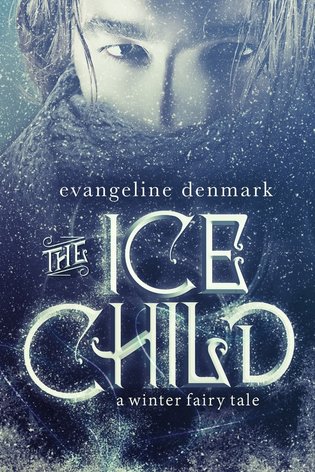 Interview by Brock Eastman Featuring The Ice Child In this novelette, Sipp, a clockmaker’s apprentice, dreams of opening his own shop, but the people of Martigny believe he’s marked by the devil—all except for kind, independent Elise. As Sipp’s hope for the title of master craftsman fades, another destiny calls to him on the winter wind. But will answering that call mean leaving Elise behind forever? Evangeline Denmark's THE ICE CHILD is a captivating fairy tale with lyrical prose and memorable characters that can be enjoyed in one sitting, but read over and over again. I really fell in love with Sipp--a talented artist--as he learned to accept his vocation, no matter what others thought of him. This is the perfect story for an evening by the fire with a mug of hot chocolate, so grab your copy and enjoy Denmark's magical world! —Ashlee Cowles, author of Beneath Wandering Stars Brock: Nice to have you with us here today, Evangeline. Could you tell us how did you come up with the idea for The Ice Child? Evangeline: This story came out of some world-building I did for my novel, Curio, although there aren’t any discernable links to that book. It was just my imagination following a path that sprang up as I did background work. Brock: Tell us about the main characters. Who are they? What makes them unique? Evangeline: Since this is a novelette, there really is only one main character, Sipp. Sipp is a clockmaker’s apprentice, an orphan, and an outcast due to a strange mark he bears. He also had an incredible talent that he hides. Brock: In three words, what is this book about? Evangeline: Creativity. Prejudice. Acceptance. Brock: Do you outline the entire book before starting, or do you write as you go and let the characters take control of the story? Evangeline: I definitely let the characters take control. Brock: How do you believe this story relates to the lives of readers? Evangeline: I think we’re all tugged toward some creative pursuit, but it’s easier for some to pursue it than others. Sipp is afraid of the exposure his talent will bring because of cruel way he’s been treated by the townspeople. I hope that readers will feel emboldened to pursue whatever art beats away inside of them, and that they’ll give space and appreciation to others attempting to do the same. Brock: What is your favorite genre to write for? Evangeline: If I say fantasy, people automatically think of dragons and epic quests, and that’s not really what I do. But everything I write falls under the Fantasy umbrella. I just haven’t figured out the correct label. Supernatural? Paranormal? Magical? Out-of-the-box weirdness? Brock: Any certain research required for the book, or is it all from your imagination? Evangeline: Since this story is set in Martigny Switzerland in the 18th Century, I did have to do some research into what that region was like during that time period. I purposefully left the timing open because guilds are featured in the story, and they were in decline toward the end of that century. Brock: Why did you choose to focus on a male protagonist? Evangeline: For me Sipp represents boys that don’t fit into society’s expectations for the traditional male, which—to borrow a phrase from my grandmother—is stuff ‘n nonsense. Sipp is an artist; he’s gentle and kind, and sees the world differently. These are qualities to treasure in any individual they happen to show up in. Brock: Can you give us a hint at the next book in the series? Evangeline: I intended for this to be a standalone holiday story, but I have another adventure in mind for Sipp and Elise, so we’ll see if I can return to their world. Brock: That's how it works. Doesn't it? So, where do you like to write? Evangeline: I write in my very cold basement with a couple of sweatshirts on, fuzzy socks, and sometimes fingerless gloves—like Sipp wears! Brock: Are you a full-time or part-time author/writer? Evangeline: I’m a full-time writer. I’m useless at everything else. Brock: How long does it usually take you to write a single book? Evangeline: Depends on the length obviously. Novellas take around 3 months, and full-length novels around 6 months to a year. Brock: When did you realize you wanted to become a writer? Evangeline: Most writers realized they wanted to write when they were kids. Often they were bookworms and lost in their own worlds. I sort of came from a different angle. As a kid I was too busy talking to think much about writing, but I created story out of everything, including my vocabulary sentences. By the time I reached college I’d recognized my deep love for words and started to think about a career in publishing. Brock: What are some of the strongest influences on your writing? Evangeline: The Brontë sisters, C.S. Lewis, Anne Rice, my mom Brock: What was your favorite book as a teen or child? Evangeline: Jane Eyre by Charlotte Brontë Brock: What are your hopes for your future as an author? Evangeline: I hope I can keep telling stories about characters who are on the fringe and encounter things that stretch or reshape their understanding of reality. Brock: Coke or Pepsi? Evangeline: Coke Zero. I’m an addict. Brock: Soft shell or hard shell tacos? Evangeline: I believe all tacos should have an equal opportunity to be in my belly. Brock: Favorite season? Evangeline: Card-carrying, PSL-drinking, boot-wearing, leaf-loving fan of Fall. Brock: Do you have a particular drink or food you consume when you write? Like coco, raspberry tea, animal crackers? Evangeline: Trail mix, Coke Zero, COFFEE. Not tacos though. It’s really hard to write and eat tacos at the same time. Brock: Do you listen to music while you write? If so, what are some examples? Evangeline: I compile soundtracks to for all my books. I think you can listen to them if you follow me on Spotify. Of course they vary but a few bands always seem to make it on my lists—Snow Patrol, The Fray, Night Riots, The Airborne Toxic Event, Vampire Weekend, U2, blink-182, Green Day. Brock: The Ice Child is based on a fairy tale. Why do you think fairy tales have enduring significance? Evangeline: Fairy tales deal with problems and fears that we wrestle with as humans. That’s why we find versions of the same story in many different cultures. They’re breadcrumbs (yes, Hansel and Gretel reference intended) along our trail to confronting problems like injustice and fear of the unknown. The Ice Child folktales attempt to explain away infidelity and always involve the wife telling a lie and the husband getting rid of a child he doesn’t want. Awful, right? With my story I wanted to focus on that unwanted child and extend the conversation to include the incredible value of each individual. Brock: What are you working on now? Evangeline: Another Young Adult novel based on a folk tale, actually. But this one comes from Japanese culture. I’m loving the chance to examine some unfamiliar legends and folklore. 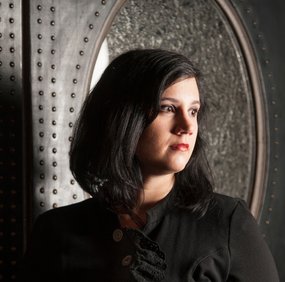 Author Website: EvangelineDenmark.com Author Facebook: https://www.facebook.com/AuthorEvangelineDenmark/ Author Twitter: @EvangelineD Author Pinterest: https://www.pinterest.com/evangelineden/ Author Instagram: https://www.instagram.com/evangelinedenmark/ 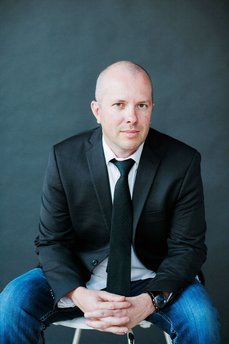 Written by Samuel Parker When a day trip out of Las Vegas with his wife takes a turn for the worse, Jack is sure that he has the ability to get them home. But he drove into something far beyond reason. Rescue comes in the form of a desert hermit, but hope fades as the couple realizes that the nomad has no intention of letting them leave. A chance encounter with a kidnapped runaway and her crazed abductor leads them all farther into the wilderness—and closer to the cold brutality that isolation brings. At the edge of his sanity, Jack begins to learn that playing by another’s rules may be the only way to survive. In a voice that is as hypnotizing as a desert mirage, debut novelist Samuel Parker entices readers down a dangerous road, where the forces of good and evil are as crushing as the Mojave heat. This is suspense in its purest, most unfiltered form. 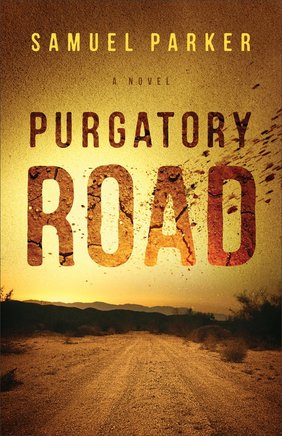 Fragments of Imagination There is a scene from the film adaptation of A River Runs Through It where the young Norman Maclean presents his father, his schoolmaster, with a piece of writing. Norman hands in his composition and his father marks it up with red, telling him “Again . . . half as long.” This happens several times until the writing is approved, thrown in the trash, and the boy runs off to fish. The Art of Brevity In a world where the mark of a “true” writer seems to be the word count tally of the day or week or month, brevity can be a sign of lack of discipline. However, brevity can be a valuable tool to wield and provide space for a reader to incorporate their own imagination into your story. One of my favorite chapters in my book Purgatory Road has only 48 words. It looks a bit odd in book form, taking up less than a half page. But I feel it is one of the more unique chapters in the book, as it conveys so much more emotion, context, and suspense than what would have been accomplished at 10 times the word count. (For context, the couple is stranded in the Mojave for a long while when we arrive at this scene.) 17 Morning light skirted the eastern ring of the valley as gently as an Easter sunrise. “Jack,” she whispered. “Yeah?” “Jack . . . water?” “No.” “It’s all gone?” “Yeah,” he said. “Oh.” “Sorry.” “Okay.” They drifted in a daze between waking and oblivion. “Jack?” “Yeah?” “I thought you left.” “Nope.” “Okay.” Brevity causes you to be confident in the words you have chosen, and confident that the reader will add what is flexible and implied, giving them more investment and bringing the story to life with much more vividness as it becomes laced with their own imagination and memory. One perfectly placed sentence can cut to the heart of a thought as quick as a Ginsu and with just as much ferocity. In fact, I think it can do more to impress on the reader the gravity of the story than burying them in superfluous prose. The Sound of Silence Music composition uses silence just as much as sounds. A pause or muted part allows the listener’s mind to wander, reflect, or ponder, as one writer said, “what it is that echoes in the silence.” [1] I would argue that sentence, paragraph, page, and chapter composition can accomplish much of the same effect. The problem that surfaces is our fear of trusting the reader to imagine our world in their own minds, to relinquish the keys of creation, and let a fragment echo in the silence and expand apart from the written word. In Purgatory Road, I use fragments to a level that caused my editor a bit of concern. Sentences are not supposed to look like this; even Microsoft tries to flag our attention and scream “This is wrong!” Below is an example of something I like to do in controlling the pace of a narrative with single words: Laura stared out of the windshield. The road ran off out of sight, disappearing into the horizon, mesmerizing in its seemingly magical disappearance. Alone. She thumbed her wedding ring in absentminded play, the sweat beginning to seep out of her skin, causing the band to roll freely around her finger. She looked at it, its jewel sparkling, shining in the rays streaming through the glass. The “Alone” gets grammatically flagged, but as read, it causes the reader to stop. A bullet. Even if it’s only for a fraction of a second, the reader has to contemplate that word in isolation. It’s more forceful than saying “she was all alone sitting in the car.” Alone. There is something slightly menacing in reducing the clutter and getting down to the raw bone of what you are trying to say. The world is not binary, so this bit of advice will not work for all occasions. Some things need explaining, some do not. But I would challenge you to look at your recent work, the one with the mega word count that you celebrated to your friends on Twitter about, and hear the voice of Norman Maclean’s father as you reread it: “Again . . . half as long.” You may surprise yourself by how a more direct and simple word choice cuts down to the marrow of the story you are trying to tell. [1] http://www.slate.com/articles/arts/music_box/2009/08/silence_is_golden.html. 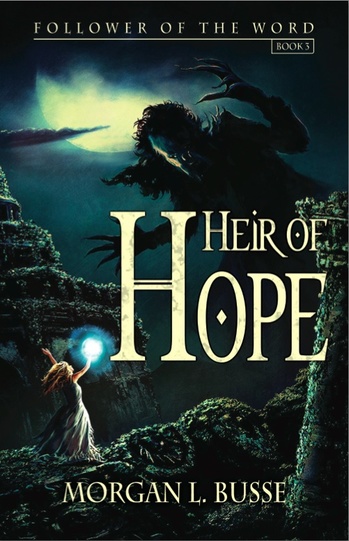 Interview by Brock Eastman Featuring Heir of Hope The great city of Thyra has fallen and shadows spread across the land. Rowen Mar, the last Truthsayer, is taken before the Shadonae. But the Shadonae are not who she thought they were, and now they want to claim her as their own. Caleb Tala, former assassin and prince, is now a Guardian of mankind. Exiled from his country, Caleb wanders the desert in search of his mother's past and clues to who he is. These are the last days of the Eldaran race. Rowen and Caleb must find their way along the dark path set before them by their ancestors: to heal what was wounded and love where hatred grows. But the road is narrow and the darkness beckons. If either of them fails, all will be lost... And the human race will be no more. Book three of the Follower of the Word series. Brock: Morgan Busse is the author of a great series from Enclave Publishing and I’ve asked her to give us some insight into the third book in the Follower of the Word series. What inspired you to write this series? Morgan: For many years my husband encouraged me to write, but I never saw myself as a writer. Then one day I walked into a Christian bookstore and asked to see their fantasy section (little did I know…). The lady gave me a strange look and pointed to a lone Frank Peretti book on the bottom shelf. I couldn’t believe there wasn’t any Christian fantasy! My husband pushed me again to write, but I still didn’t budge until a couple months later on a car trip to Seattle I had this idea about a young woman who—when she touched a person—could see inside their soul. When I arrived back home, I got on my computer and started writing Daughter of Light, the first book in the Follower of the Word series, and I’ve been writing ever since. Brock: Who are the main characters in the series? Morgan: The main character is Rowen Mar. After the death of her father, Rowen discovers she is not human, but the last of a race of beings called the Eldarans. More specifically, she is a Truthsayer, with the ability to not only see inside a person’s soul, but reflect back the person’s true nature. Of course, a power like this terrifies the people she is around, causing her to be banished from her village and live her life hiding the mark on her hand beneath a leather glove. Lore Palancar is the Captain of the Guard and the man Rowen serves under as a guard. It is her relationship with him that gives her the courage to finally follow the Word and be true to who He made her. Caleb Tala is a prince and a secret assassin. But his past deeds start to catch up to him in the form of nightmares and he is plagued by the realization that someday he will pay for all the lives he has taken. Nierne is a scribe dedicated to the Monastery and to the Word. When her city is taken over by powerful, evil beings, she embarks on a journey to find the legendary Eldaran race who have the power to save her people. Brock: Sounds like a great variety. What is something about each character that no one but you knows (Until now.) Morgan: Rowen loves to garden and enjoys watching things grow (something I hint at in Daughter of Light). Lore is the last and only son of the Palancar family. Caleb went on his first assassination mission when he was twenty years old. Nierne has no last name. When she joined the Monastery order, she gave up any family affiliations she had. Brock: In a sentence what is this book about? Morgan: That in darkness there is always light. Brock: How do you believe this story relates to the lives of readers? Morgan: Following God is hard. There are times He asks very hard choices of us, and sometimes we don’t understand why He lets bad things happen to us. I wrote the Follower of the Word series as an honest look at what it takes to follow God. Brock: What do you hope readers take away? Morgan: Courage to live a life for God and hope during dark times. Brock: What is your favorite genre to write for? Morgan: Fantasy. I have a feeling that no matter what genre I wrote in, some kind of fantastical element would make it into my story. Right now I’m working on a Victorian steampunk series and sure enough, a bit of fantasy is woven within the story. Brock: How many books are planned for this series? Morgan: Follower of the Word is a three book fantasy series. Heir of Hope, the last and final book will release at the end of March. Brock: Any certain research required for the book, or is it all from your imagination? Morgan: Even an imaginary world needs research. A lot of the countries and cultures in my series are based on real world places. This helps make the world feel more real and authentic in my opinion. However, the benefit to writing an imaginary world is I can tweak cultural/political/religious aspects to fit my world, unlike historical fiction where the writer needs to get all of his or her facts right. Brock: Is it difficult to be accurate to a Biblical perspective or Biblical facts when writing fantasy fiction? Morgan: I don’t find it hard to be accurate. I am a visual person, and so when I teach, I use visual ideas to help people grasp Biblical concepts. Naturally, that comes into my writing as well. I don’t preach in my stories, I show who God is, what sin is and what it does to us, and what sacrificial love is by telling a story. The great thing about fantasy is you can actually show it. For example, the assassin Caleb is shown the consequences of his sin by dreaming about his hands covered in blood. The only way he can finds forgiveness is by allowing the Word (God) to touch his hands and take the blood away. Brock: How do you hope parents will use this book with their kids? Morgan: The Follower of the Word series is for teens and up. For parents who are looking for a fantasy series that will share the gospel and show their teens who God is, this is the series for them. I do not shy away from the darkness, but it is not glorified either. I originally wrote this series to share my faith with my own children and open their eyes up to who God is. Brock: Are you a full-time or part-time author/writer? Morgan: I write part-time. As a mother and pastor’s wife, I have other responsibilities and so I’ve learned to take an hour or two a day to write, then I move on to being a mom and wife. I will always have my writing, but I won’t always have my kids, so I want to make the most of my time with them now. Brock: How long does it usually take you to write a single book? Morgan: I am a slow writer. Along with that, I am also a mother of four kids, so it usually takes me a year to take a story from outline to finished novel. Brock: Morgan, do you outline the book, or do you write as you go? Morgan: I outline the main parts of the story (the beginning, the main plot events, and the ending). But as I write, I discover more stuff and the story starts to come together. However, I cannot write until I know how the story is going to end. That is the target I am aiming for with the story. Brock: When did you realize you wanted to become a writer? Morgan: I never dreamed about being a writer. So it wasn’t until after the birth of my daughter and at the encouragement of my husband that I finally sat down and started writing Daughter of Light. Wow, I had no idea how hard it was to write! Next to parenting, it is the hardest thing ever in my opinion! But it is also very satisfying to hold the finished story in your hands and see your heart and soul poured out on paper, and to receive emails from people who were touched by your words. Brock: Favorite place to vacation? Morgan: That’s a hard question. It’s a tie between the coast (Oregon or Washington) and camping in the mountains. I love the outdoors and spend anytime I can in God’s creation. Brock: Favorite season? Morgan: Fall. I love the colors of the trees, the smells (like apple pie and spices), warm sweaters, lighting up the fireplace for the first time, and the way the air is crisp cold in the morning, but warm by afternoon. Brock: Do you have a particular drink or food you consume when you write? Morgan: I drink a lot of tea while I write. Earl Grey is probably my favorite right now! Brock: Favorite color? Morgan: Green. Green is the color of life and growing things. 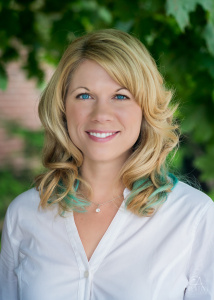 Author Website: MorganLBusse.com Author Facebook: facebook.com/morganlbusseauthor Author Twitter: @MorganLBusse Author Pinterest: pinterest.com/morganlbusse Listen to author Jack Hayes talk about getting published and working with Crimson Pulse Media! His story Silencing Void is featured in Nebula Chronicles: Endeavor. 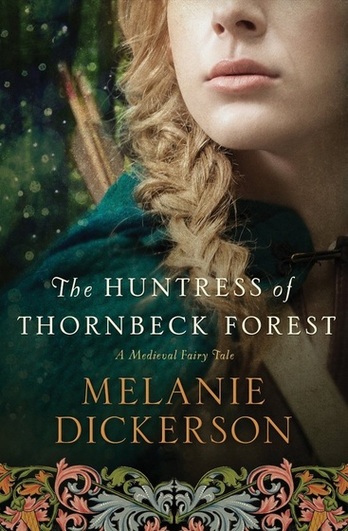 Interview by Brock Eastman Featuring The Huntress of Thornbeck Forest A beautiful maiden who poaches to feed the poor. A handsome forester on a mission to catch her. Danger and love are about to unite in Thornbeck Forest. The margrave owns the finest hunting grounds for miles around—and Odette Menkels spends her nights poaching his deer to feed the hungry orphans of Thornbeck. By day, Odette is a simple maiden who teaches children to read, but by night this young beauty has become the secret lifeline to the poorest of the poor. For Jorgen Hartman, the margrave’s forester, tracking down a poacher is a duty he is all too willing to perform. Jorgen inherited his post from the man who raised him . . . a man who was murdered at the hands of a poacher. When Jorgen and Odette meet at the Midsummer festival and share a connection during a dance, neither has any idea that they are already adversaries. The one man she wants is bound by duty to capture her; the one woman he loves is his cunning target . . . What becomes of a forester who protects a notorious poacher? What becomes of a poacher when she is finally discovered? “Ms. Dickerson deftly captures the flavor of life in medieval Germany in a sweet tale filled with interesting characters that will surely capture readers’ hearts.” —Kathleen Morgan, author of These Highland Hills series, Embrace the Dawn, and Consuming Fire. Across the header of Melanie Dickerson’s website you’ll find a message to what her stories are all about, “Medieval Fairy Tale Retellings.” As a guy this title doesn’t exactly grab my interest, but as a daddy of three girls, it’s all I need to know. A trusted author in the Christian marketplace Melanie continues to develop wonderful characters who take us on adventures never short of excitement. Her books are ones I will trust my daughters to sit down and read and have confidence they’ll be learning strong moral truths as they do. I had the chance to interview Melanie about her latest release The Huntress of Thornbeck Forest. “I have always loved all things Medieval, as it is such a colorful period of history and seems so full of adventure and excitement and romance,” Melanie says of what inspired her to write this tale. She goes on to explain that she’s always been intrigued with castles and knights, secret identities, damsels in distress, and courageous women triumphing in a difficult world. This combination of elements are what makes her writing so powerful and enjoyable. In her previous series each book was based loosely on a fairy tale. For this series she thought it would be fun to base each book on a mash-up of two or more familiar stories. Like myself, she’d always loved the Robin Hood story, she took that story and found a way to combine it with Swan Lake into one exciting, romantic novel. As for the main characters we meet in this story there are two. Odette Menkels was orphaned by the Great Pestilence, a.k.a. the Black Plague, and now lives with her uncle Rutger. Odette has a mind of her own. She remembers how she felt as a very young orphan, left with neighbors who treated her badly and where she often went hungry. She sees the plight of the poor and orphan children who live in Thornbeck and takes matters into her own hands. Good with a bow and arrow, she starts poaching deer from the margrave’s forest to feed the children. And then there is Jorgen Hartman, also orphaned as a child he spent time on the streets where he tried to protect and provide for his little sister, who ultimately died in an accident. He is later taken in and adopted by the margrave’s gamekeeper where he becomes the new forester—the person in charge of catching poachers and bringing them to justice. I asked Melanie to give me the story in three sentences, so here it is, “The Huntress of Thornbeck Forest is about trusting God to give you your dreams and to provide. Sometimes we try to take matters into our own hands, because we think we know what is best and right. But God always has a better plan.” With three books planned for the series I asked for a hint at what will be next in the second book. “The Margrave of Thornbeck lives in a castle in the forest outside the walled town of Thornbeck. He is the leader and ultimate authority in Thornbeck. He has to find a bride, fast, and he wants to make sure she has the same values he has, and that she will not turn out like his mother, who was bitter and hated his father. So he invites ten noble-born ladies from around the country for two weeks. His two-week-long party becomes a series of “tests” to show the character of these ladies. What he does not know is, the one lady he is attracted to is not the daughter of an earl, but she is actually that lady’s maidservant, sent to impersonate the real lady.” The second tale sounds a promising as the first book was to read. If you like fairy tales and medieval fantasy then The Huntress of Thornbeck Forest is for you. Brock: Do you outline the entire book before starting, or do you write as you go and let the characters take control of the story? Melanie: I don’t write an outline, but I know in my mind the gist of the story before I start writing. I know what my characters want, and I know certain key events that have to happen in the story. I also know (sort of) how it should end. This gives me a general map, but I sometimes “discover” my characters’ personalities and backgrounds, as well as many twists and turns of the plot, as I write. Brock: How do you believe this story relates to the lives of readers? Melanie: I believe readers will relate to the characters’ emotions of feeling conflicted—wanting to do the right thing but not always knowing what the right thing is. I believe many readers will relate to the struggle of wanting to get things done, striving and working hard, but seeing very little good come out of their efforts, and having to let go and let God work things out in his perfect way and his perfect timing. And with God, there is always an ultimate happy ending. Brock: What is your favorite genre to write for? Melanie: My favorite genre is historical romance, and Medieval historical romance is what I have the most experience writing. I love romance because it is exciting and a great symbol of God’s love for us, and it’s something we can all relate to wanting and caring about—or most of us! And historicals are just fun. It’s fun to imagine ourselves in another time period, to lose ourselves in a place and time so different from the familiar around us, and yet realize that people are people no matter where or when they grew up. Brock: How many books are planned for this series? Melanie: There are three books in this series. The second book is about the Margrave of Thornbeck, who must find a bride, and it is something of a “Beauty and the Beast meets Princess and the Pea” type of story. And the third book will be a “Goose Girl meets Prince and the Pauper” story. Brock: Any certain research required for the book, or is it all from your imagination? Melanie: I always try to make sure my Medieval details are sound, which involves some research, and I do a bit of research of the fairy tales my books are based on, which mostly entails reading the original fairy tale story and watching the Disney movies with my daughters. ☺ Brock: How do you strike the right balance in your book? Melanie: I like a little action-adventure with my romance. I also try to make sure my story plot is plausible and could have possibly happened in the time and place of my setting. All good fiction involves truth—true-to-life emotions and conflicts and motivations. Brock: What do your readers think about your latest series? Melanie: The fifth book in my current YA series just came last November, The Princess Spy. I get a lot of feedback from readers saying how much they love the way the stories are connected, and they get to see glimpses of the place, Hagenheim, and the characters from previous books. I’m hoping I can duplicate that in this new series about Thornbeck and its residents. Brock: Are you working on the next book in the series? Melanie: Yes, I am currently working on the margrave’s story. Brock: Can you give us a hint at the next book in the series? Melanie: The Margrave of Thornbeck lives in a castle in the forest outside the walled town of Thornbeck. He is the leader and ultimate authority in Thornbeck. He has to find a bride, fast, and he wants to make sure she has the same values he has, and that she will not turn out like his mother, who was bitter and hated his father. So he invites ten noble-born ladies from around the country for two weeks. His two-week-long party becomes a series of “tests” to show the character of these ladies. What he does not know is, the one lady he is attracted to is not the daughter of an earl, but she is actually that lady’s maidservant, sent to impersonate the real lady. Brock: If your book changed as you wrote it, how is it different than how you originally planned? Melanie: The heroine’s guardian, Rutger, underwent a major change during edits, but while I was writing, I was surprised by my hero’s personality and the things he liked to do and even what he was thinking. Originally, I wasn’t quite sure how it would end, so the ending kind of evolved as well. Brock: Were any scenes or characters cut from the book? Can you give an example? Melanie: Truly, my editors, especially Becky Monds, deserve a lot of credit for this book! Becky made tons of great suggestions. During edits, I actually got rid of the heroine’s mother. I also changed her guardian completely. He went from being an evil, manipulative villain, to being a normal guy with good traits and bad traits. I also changed several other characters. Originally my heroine’s best friend Anna was single, and in the rewrites I made her married. I deleted the scene in the original story where Peter asks Anna to marry him. (Sorry, Peter! You’re already married!) Brock: Is it difficult to be accurate to a Biblical perspective or Biblical facts when writing Medieval fiction? Melanie: The Medieval time setting presents its own challenges. In a way, it is helpful that practically everyone in that time period believed in, and feared, God, but most people had not read the Bible, and that makes it difficult for me. I try to be true to the time period, but since I am not Catholic, I am sure my characters sometimes come across as being more Protestant in their thinking. I do make my characters interested in reading the Bible, whenever feasible, and get them a copy of at least part of the Bible. They go to church and no one questions their reverent fear of God, since it’s true to the time period. So there are pros and cons. Personally, I find it freeing to write stories in a period when faith in God was never a question. Everyone believed and trembled. Whether or not they obeyed is another story. Brock: How much leeway do you give yourself with facts in a Historical Genre? Melanie: I don’t write about actual people, except to briefly reference the king, so I don’t have to worry about getting a person’s life story completely accurate to history. Also, I use fictional towns and places within the German section of the Holy Roman Empire, so I can make up those details as well. But I do try hard to make sure my characters aren’t using tools or items that did not exist in the day. The most difficult thing is trying to stay true to the mindset that was prevalent then. Although I think there was more variation than some people think, I do probably err a bit on the side of not making my characters’ attitudes toward women so very Medieval. Brock: Where do you like to write? Melanie: I like to write in my comfy chair in my study when I’m really into the story and know exactly where it’s going. But when I’m struggling to get words down, I like to go to a restaurant, coffee house, or the library to write. I am more focused with the activity and background noise around me, I don’t know exactly why. Brock: Are you a full-time or part-time author/writer? Melanie: I am a full-time writer. Brock: How long does it usually take you to write a single book? Melanie: It has been taking me about four months, and during that time I am also editing previous books. Brock: When did you realize you wanted to become a writer? Melanie: I wanted to be a writer probably around the time I was in the 6th or 7th grade. I started writing stories and passing them around to my friends to read. Brock: What was your favorite book as a teen or child? Melanie: Two of my favorite books as a teen were Gone With the Wind and Pride and Prejudice, so, you know, it was kind of inevitable I would become a historical romance writer. Brock: In what ways does your faith impact how you approach writing? Melanie: I pray. I pray that my stories will bring glory to God, and I pray they will affect my readers in the ways God wants them to. Also, I know Christians ultimately get the victory—every time. We get our happy ending. Anything less than that doesn’t seem realistic to me. Brock: Favorite season? Melanie: Spring! Brock: Do you have a particular drink or food you consume when you write? Like coco, raspberry tea, animal crackers? Melanie: Flavored green tea and dark chocolate! Brock: Favorite color? Melanie: Red Brock: Do you have a favorite Bible verse? Melanie: Ephesians 3:20-21 Now to him who is able to do immeasurably more than all we ask or imagine, according to his power that is at work within us, to him be glory in the church and in Christ Jesus throughout all generations, for ever and ever! Amen. Brock: Favorite pasta dish? Melanie: Lasagna! Brock: Do you listen to music while you write? If so, what are some examples? Melanie: Sometimes I listen to Andrea Bocelli. He’s my favorite because his music is emotional, but he sings in Italian and so I don’t get distracted by the words, since I don’t know any Italian! I also listen to movie soundtracks like Jane Eyre and Last of the Mohicans, and classical music. Brock: Now that you are writing a new series, will you still be continuing your Young Adult fairy tale series? Melanie: Yes, I have a Rapunzel story, The Golden Braid, coming out in November. Even though it will be the 6th book in my YA series, all the books are able to be read as stand-alones, and you won’t feel like you missed something if you haven’t read all the previous books. Brock: How will the new series be different from your Young Adult series? Will your teen readers be interested in reading these new books? Melanie: The main difference is that the new series has slightly older heroines in slightly more mature situations. For instance, in The Huntress of Thornbeck Forest, the heroine is twenty-one years old and although she has a guardian, she isn’t exactly in a parent-child relationship with her guardian. He respects her opinions and her independence. But these books will also be “young adult-friendly” in that they should still be appropriate and relatable for my teen readers. 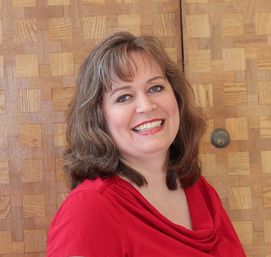 Author Website: MelanieDickerson.com Author Facebook: facebook.com/MelanieDickersonBooks Author Twitter: @melanieauthor 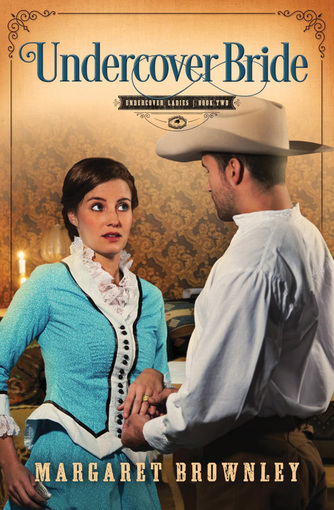 Interview by Brock Eastman Featuring Undercover Bride Pinkerton detective Maggie Cartwright has no intention of walking down the aisle. . . . But her current case has Maggie posing as a mail-order bride for widower Garrett Thomas, the prime suspect in the Whistle-Stop Bandit robbery. No sooner does Maggie arrive in Arizona Territory when she’s confronted by his meddlesome aunt who insists the two set an early wedding date. With the clock ticking, Maggie sets to work to uncover the truth. Maggie is nothing like the woman widower Garrett expected from her letters. But he’s immediately smitten with the blue-eyed beauty and feels the need to protect her, not only from his aunt’s critical eye, but also from the ugliness of his past. As the day of the wedding draws near, Maggie begins to panic. The investigation may be progressing, but the real problem is that the more she gets to know Garrett and his two charming children, the harder it is to keep up the deception. Can a man as kind and gentle as Garrett really be the Whistle-Stop Bandit? Or has the possibility of a home, family, and a handsome husband blinded Maggie from seeing the truth? Brock: How did you come up with the idea for this book? Margaret: The idea for my Undercover series came after I read the biography of Kate Warne, the first female Pinkerton detective. I was shocked to learn that she was hired by Allan Pinkerton in 1852. That's fifty years before the first policewoman was hired. He thought she was applying for a secretarial job but she soon relieved him of that notion. Oh, to have been at that meeting! Brock: Tell us about the main characters? Who are they, what makes them unique. Margaret: Pinkerton detective Maggie Michaels is working undercover as a mail order bride, a job that requires much courage on her part. Her "fiancé" is widower Garrett Thomas, suspected of being the brain behind the Whistle-Stop train holdup. He's a tinker by trade. How he learned the trade is pretty unique. While in the Andersonville prison camp he learned to make cooking and eating utensils for himself and the other prisoners out of canteens and brass buttons. Brock: Give us one fact about each main character that no one else knows. Margaret: Garrett sings off-key in the bathtub and Maggie keeps a stack of dime novels under her bed. Brock: In three sentences, what is this book about? Margaret: Posing as a mail order bride, Maggie Michaels has only a few short weeks to find the seventy-five thousand dollars stolen during a robbery. The clock is ticking. If she doesn't find the proof to put the suspect away, she could end up as his bride! Brock: How do you believe this story relates to the lives of readers? Margaret: A kindly minister saved my orphaned heroine from falling into a life of ill-repute. Instead of following in her father's criminal footsteps, she works on the side of law and order. While I was writing her story, it occurred to me how many wonderful people in my own past helped me become the person I am today. I hope the book will inspire readers to reflect on their own lives and the teachers, ministers and other counselors who helped them along the way. Brock: What is the biblical background or basis for the basic? Margaret: The basic theme relates to the Bible verse chosen for the book: Where there is no counsel, the people fall; But in the multitude of counselors there is safety. Proverbs 11:14 NKJV This theme plays out through the heroine's determination to help the paperboy Linc, whom she fears is on the wrong path and will one day end up as one of Pinkerton's most wanted. I believe we're all called to serve as counselors or mentors and to reach out to others. Brock: Any certain research required for the book? Margaret: Oh, my, yes. Years of watching Castle, CSI and Rizzoli and Isles had taught me a lot about modern day forensics (and how to solve a crime in an hour), but left me clueless when it came to plotting a mystery series set in the nineteenth century. Those old time sleuths had no fingerprints, video cameras or DNA, yet they almost always got their man (or woman) and that's pretty amazing. To find out how they did it I read sixteen books written by Allan Pinkerton and a few written by some of his operatives. Many of the investigative techniques Maggie uses in the book were actually devised by Pinkerton detectives. Brock: How do you strike the right balance in your book? Margaret: You're right, Brock, it is a balancing act. I think the trick is to know reader expectations. Since I write inspirational romance I know that my readers want to feel all the uncertainties and joys of falling in love, so that's always upmost in my mind. My trademark is humor so readers would be disappointed if I didn't make them laugh. My readers also appreciate a meaningful faith-based story that's not preachy. Many women share the same experiences I had in school, where history was taught from a male point of view—all those battles and dates! My female readers really enjoy learning about the past in a fun and entertaining way. As far as working in historical details sometimes less is more. Brock: Why did you choose to focus on male and female protagonists? Margaret: Since I write romance, I try to keep the focus as much as possible on the couple. I love writing romance because every possible theme and conflict can be explored through the relationship of two people falling in love. Brock: Can you give us a hint at the next book in the series? Margaret: I recently turned in the third and last book in the series. Calico Spy takes place in Calico, Kansas. Someone is killing off the Harvey Girls and undercover Pinkerton detective Katie Madison hopes to find the killer before the killer finds her—or before she burns down the restaurant trying. Brock: If your book changed as you wrote it, how is it different than how you originally planned? Margaret: I don't do much in the way of preplanning a book. All I need is an inkling of an idea and an opening sentence and I’m off and running. So I can't really say the book changes because I don't know where it's going in the first place. Brock: What was the biggest set-back you had as a writer? Margaret: I would have to say that flunking eighth grade English was my biggest set-back. My teacher told me not to even think about being a writer. The way I handled it was to give up my dream (big mistake!). It took years before I realize that God doesn’t put a dream into our hearts without also giving us the tools to pursue it. I just had to learn how to use those tools. I never did learn how to diagram a sentence but, with the help of a lot of dedicated editors, I learned how to tell my stories. Brock: What's next for you? Margaret: In addition to Undercover Bride I have a novella out this summer titled The Dog Days of Summer Bride, and as soon as I clean my office I'm starting a new series. 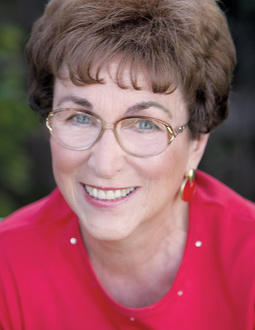 Author Website: Margaret-Brownley.com Author Facebook: facebook.com/MargaretBrownleyAuthor Author Twitter: twitter.com/margaretbrownly Author Pinterest: pinterest.com/brownley1 Author Goodreads: goodreads.com/goodreadscommargaretbrownley 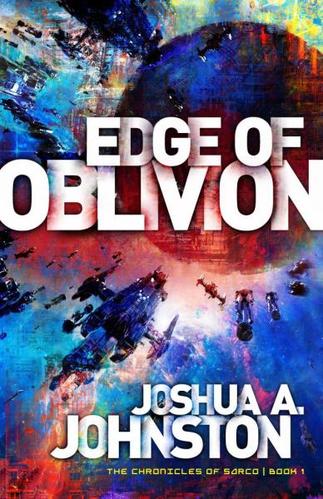 Interview by Brock Eastman Featuring Edge of Oblivion A Forgotten Past. A Terminal Future. Earth has emerged from a cataclysmic dark age with little knowledge of its past. Aided by the discovery of advanced alien technology, humanity ventures into the stars, joining other sentient races in a sprawling, prosperous interstellar Confederacy. That peace is soon shattered. Without warning, the Confederacy comes under attack by an unstoppable alien force from the unknown regions. With hopes for civilization's survival dwindling, Commander Jared Carter is sent to pursue an unlikely lead: a collection of ancient alien religious fragments which may - or may not - hold the key to their salvation ... Brock: What was your inspiration for writing The Chronicles of Sarco? Joshua: I grew up with a real affinity for science fiction, both on television and in the written form, but I also realized that relatively little of what I watched and read dealt with faith in any substantive way. Isaac Asimov, who was not particularly religious, nevertheless lamented about the dearth of science fiction that explored the relationship between God and extraterrestrial life. Part of the reason is that so many science fiction authors were and are humanists, so their worlds marginalize religion as being anti-intellectual or just ignore the subject entirely. At some point I figured, why not try my hand at it myself? Why not see if I could craft a story that incorporated both faith and aliens? That’s where Edge of Oblivion came from. Brock: Tell us about the main characters. Who are they? What makes them unique? Joshua: The primary cast of Edge of Oblivion serves together in a sort of interspecies Navy. Their ship is a small interceptor called the Retaelus, and it specializes in rooting out the pirates that plague the trade lanes between planets. The captain and communications officer are both humans; the weapons officer, sciences officer, and engineer are all non-humans, extraterrestrials from other worlds. Part of the fun of the story is finding out both about the officers themselves and the alien races they come from. On one level, you learn about their cultures and distinct racial traits, but you also learn about the individuals – their pasts and hopes, their accomplishments and failures … and some of their secrets. Brock: Give us one fact about the main character that no one else knows. Joshua: The commander of the Retaelus, Jared Carter, is the epitome of the middle-of-the-pack leader. His career is a succession of respectable but forgettable posts. When it comes to really important assignments, he’s rarely anyone’s first choice, which gnaws on him at times, especially given that his father is a successful Earth politician. But he also is reluctant to engage in the sort of grandstanding and politicking that other officers do to climb the Navy ladder. So it creates a bit of a dilemma for him, and one that he struggles to resolve in his own mind. Brock: In three words, what is Edge of Oblivion about? Joshua: Epic. Space. Adventure. Brock: Do you outline the entire book before starting, or do you write as you go and let the characters take control of the story? Joshua: I outline the entire book before starting, but I’m not automatically rigid about it. There are times I will work out a chapter and then, as the book flows, decide that I’d like to take things in a little different direction. I do like to keep a clear end in mind, though; I almost always know where I want to end up. Sometimes, though, the road to get there may fluctuate a bit. Brock: How do you believe this story relates to the lives of readers? Joshua: Science fiction, I think, is appealing because it takes readers out of their own lives and into someplace different and fantastic. That said, the everyman nature of the crew – and the real problems that they deal with – are elements I think will resonate with readers. Yes, the crew has courage, and yes, they sometimes do courageous things, but they don’t do them because they have some crazy abilities. They do it for the same reasons we sometimes have to rise up in our own lives – because necessity demands it. Brock: What is your favorite genre to write for? Joshua: Definitely the one this falls in, science fiction. I love the idea of being able to create worlds outside of our own and explore them. Exploration is one of the underlying themes of this trilogy, and I hope readers are as excited to visit these new worlds as I was in writing them. Brock: How many books are planned for this series? Joshua: It’s a planned trilogy, which I’m also supplementing that with some prequel and interquel short stories that are and will be available through my author website. Some of the wheels in my head have already started turning with respect to going beyond that, but right now my primary focus is on the chronology of the three books. Brock: How do you strike the right balance in your book between plotlines and character development? Joshua: This is, I think, where beta readers and editors have been invaluable for me. In the plot and character spectrum, I lean more plot, but along the way I’ve had various people say, “Tell me more about this guy” or “Flesh her character out more.” That has been good for me. I mean, I did a lot of prewriting on my characters, but those suggestions really forced me to think more deeply about what makes my characters tick. I hope the end result is a book with good characters and a well-paced plot. Brock: How does it feel to have your work published? Joshua: Absolutely surreal. It’s been a succession of surreal moments. Getting the first request for a full manuscript, the phone call offering me a contract, signing the contract, seeing a book cover with my name on it, seeing an Amazon book listing … every step is something new in my life experience. And as hard as it’s been, it’s also been a real blast, to immerse myself in the way writing and publishing work, and to see how I can succeed there. Brock: Are you working on the next book in The Chronicles of Sarco? Joshua: And then some. Book 2 is in the hands of the publisher and I’m currently hard at work on Book 3. Brock: Are you a full-time or part-time author/writer? Joshua: Part-time. My day job is teaching high school history and government. There is a part of me that wouldn’t mind being able to write full-time, but I also think my day job is good for me; it gets me on my feet, away from my computer, and into life experiences that for me, personally, have been good for my creative process. Brock: What are some of the strongest influences on your writing? Joshua: Lots of names come to mind. Edgar Rice Burroughs did some amazing world building with the John Carter novels. Isaac Asimov’s books were grand and epic, and Robert Heinlein’s books were just really solid adventures, especially his earlier works. And as much as I talked earlier about science fiction being a humanist domain, Orson Scott Card and Frank Herbert have done some interesting things in exploring how faith fits in with science fiction. Brock: What’s your view on e-books and the new publishing revolution? Joshua: The history guy in me knows that every advancement comes with tradeoff. On one hand, I hear stories from established traditional authors about how things like book tours and publisher marketing campaigns are not what they used to be. Yet I’ve also read stories about how eBooks and the Internet have really democratized the process and allowed for more authors to carve out a space. I would like to believe that interest in books has grown, not shrunk, with the advent of eBooks, and in a world where so many things compete for our time and attention, that’s cool. Brock: What was your favorite book as a teen or child? Joshua: Really hard choice, so I’m going to cheat and name four … well, one series and one book, anyway. The series is Asimov’s Foundation books, which are both profoundly deep and broad, grappling with all kinds of issues across this astonishing timeline. The book is Robert Heinlein’s Tunnel in the Sky, which chronicles a young man stranded on an alien world with a group of other students. It’s a great survival-against-all-odds tale. Brock: What are your hopes for your future as an author? Joshua: You know, I’m not sure. I know I enjoy writing and I’m thrilled that I have the opportunity to showcase that work through a publisher, but I’m also trying to live in the moment and just enjoy the journey as it comes. My wife and I have talked some about where I would like to go with writing down the road, but at this point I’m simply taking things one day at a time. Brock: Coke or Pepsi? Joshua: Give me a Coca-Cola Classic and I’m in heaven. Brock: Favorite place to vacation? Joshua: My wife and I have a large 18x10 foot tent that we put to use each summer at various state parks in our region. I love pitching a tent on a warm (but not hot) summer day, cooking burgers over an open flame and hiking across quiet trails with my wife and daughters. Those memories are priceless. Brock: Do you listen to music while you write? If so, what are some examples? Joshua: I love epic ambient orchestral soundtrack music. Give me an Audiomachine marathon and I’m pretty much set. Brock: Have you done any other writing besides fiction? Joshua: Over the years I’ve done a fair bit of writing on other subjects. I’m a former senior editor and now contributor to Nintendojo, a fansite devoted to games for Nintendo consoles and handhelds. I once even got invited to demo Guitar Hero out in California, but I painfully had to turn it down because of the demands of my day job. I also chip in with some articles on parenting for a website called Mumbling Mommy, which my wife works for as an editor. Brock: What are your favorite nonfiction titles? Joshua: My degree is in history, so I’ve read a fair bit on that subject over the years. I enjoy reading up on American presidents, especially as historians re-evaluate their presidencies over time. I also love a good nonfiction adventure tale: one of my favorites is Alfred Lansing’s Endurance, an incredible and very true story of Ernest Shackleton, who led a crew though a series of harrowing ordeals in the Antarctic during the 1910s.  Author Website: JoshuaAJohnston.com Author Facebook: facebook.com/joshuaajohnston Author Twitter: @jallenjohnston Author Goodreads: goodreads.com/joshuaajohnston 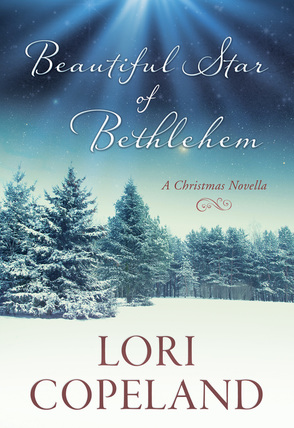 Interview by Ashley Eastman Featuring Beautiful Star of Bethlehem When Memories Are Lost, Only Love Remains How did Arlene Santana—happy wife, successful business owner, young grandmother—get here, a rehabilitation center surrounded by old people? Her new friends make her laugh, and the days speed by, marked by holidays on which her two sons and their wives come to visit her. But when will her husband, whose love she feels every moment of every day, come to see her? Then one Christmas the confusing pieces of Arlene’s life start to click into place, but will she and her sons like the reality they face? Readers will treasure this poignant novella from bestselling author Lori Copeland. “Lori Copeland’s Beautiful Star of Bethlehem is a Christmas book I will never forget. From the stunning—and surprising—opening to the lovely and perfect ending, I fell into the tale and didn’t want to leave the friends I made there.” -Kathleen Y'Barbo, bestselling author of Firefly Summer and The Secret Lives of Will Tucker series Lori’s light as a powerful story continues in this latest novel; Beautiful Star of Bethlehem. A story that will grip each reader and make us more appreciative of the holidays and the moments with our family that surrounds. Ashley: What inspired you to write Beautiful Star of Bethlehem? Lori: The older I get the more time I spend visiting the elderly in nursing or assisted living facilities. The seed for this story sprouted many years ago and grew until I knew this was a story I needed to share. One of sadness, but encouragement, one of loss but having known a true, solid love of family and children but most of all, a story about how life can change swiftly at any age. Beautiful Star of Bethlehem is poignant, thoughtful—even humorous at times but isn’t all of life that way? Most of the book is a reminder that when something precious is taken another gift is given. Ashley: Who are Arlene and Jack Santana? Lori: Arlene Santana is a vibrant, loving mother-- and now first-time grandmother. She has a solid marriage, co-owns half of Santana Toys with the love of her life, her husband, Jack Santana. The late fiftyish couple has reached the pinnacle—the point in their life they can set back, enjoy the fruits of their labor and still be healthy, happy and alive. Ashley: What is unique about them? Lori: The unique angle is their world will end in less than two hours. Ashley: What is one fact about Jack and Arlene no one else knows? Lori: Jack loves chunky monkey ice cream. Chocolate gives Arlene hives. Ashley: In three sentences what is Beautiful Star of Bethlehem about? Lori: This book is about hope. This book is about survival. This story could happen to anyone. Ashley: How do you believe this story relates to the lives of readers? Lori: I can’t think of many readers who have not lived or cannot relate to this story. The book is poignant, honest, will make many flinch when they see themselves in this story, but the reader will come away with renewed faith and a sense of “doing better” toward the ones who sit in God’s Waiting Room. Ashley: How do you strike the right balance of themes in your book? Lori: I wanted to hit the balance of humor and humanness in Beautiful Star of Bethlehem. Only the reader will be able to tell me if I achieved my goal. Ashley: Can you give us a hint at the next book in the series? Lori: Well, I haven’t sold the book yet, but I would like for the title to be “God’s Waiting Room.” The story that I have in mind has nothing to do with living—or assisted living; rather the day we will all sit in God’s Waiting Room and listen to the conversations taking place around us. The incredulous and sometimes sound reasons the new arrivals feel they’ve made it thus far. 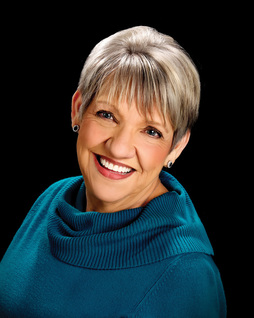 Author Website: LoriCopeland.com Author Facebook: facebook.com/pages/Lori-Copeland/49638671412 GoodReads: goodreads.com/author/show/39205.Lori_Copeland?from_search=true&search_version=service |
Follow meArchives
May 2024
Categories
All
|
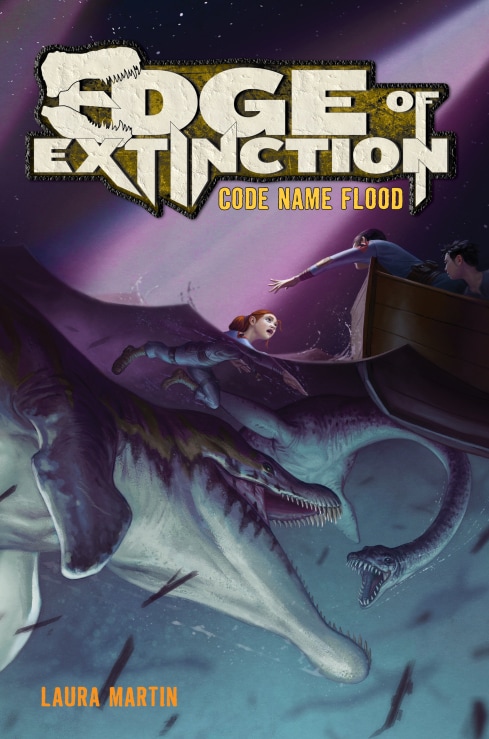
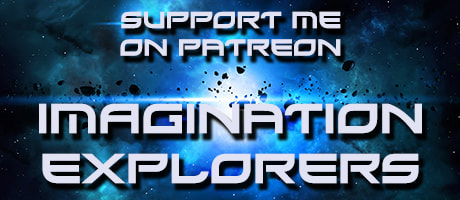
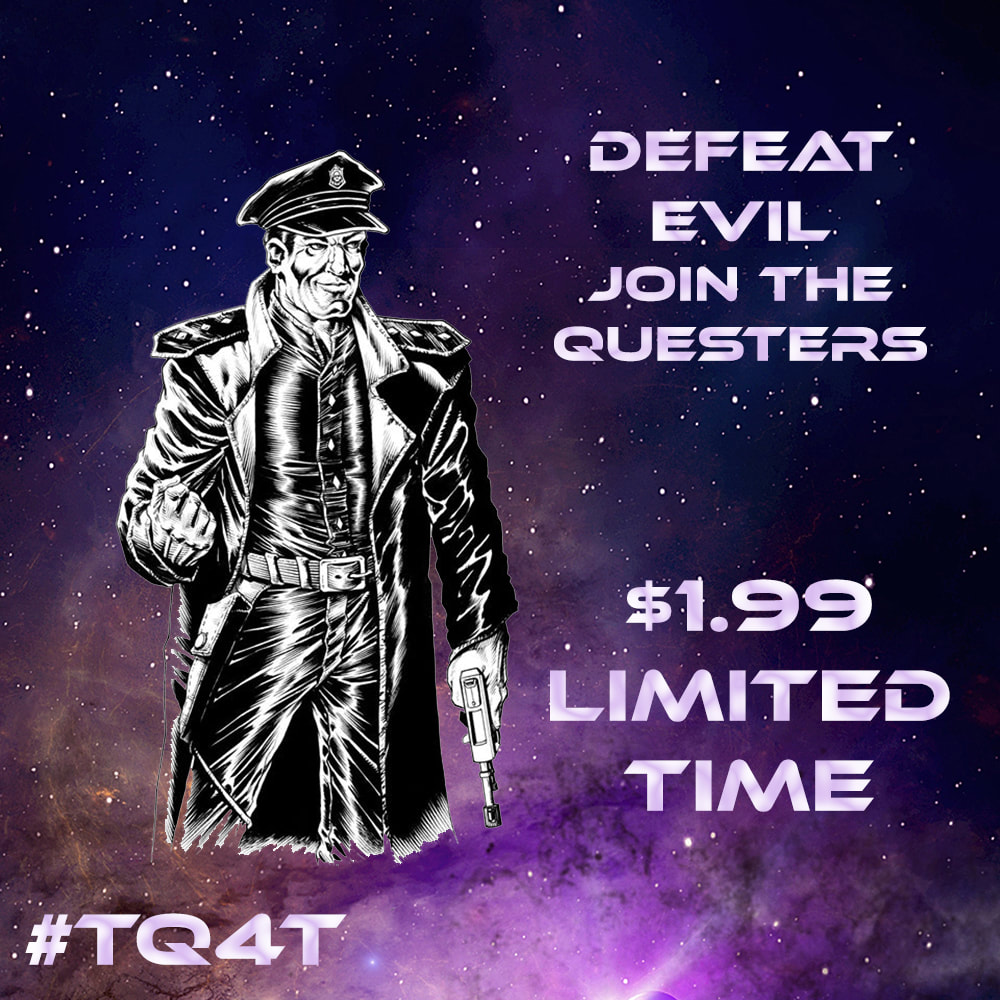
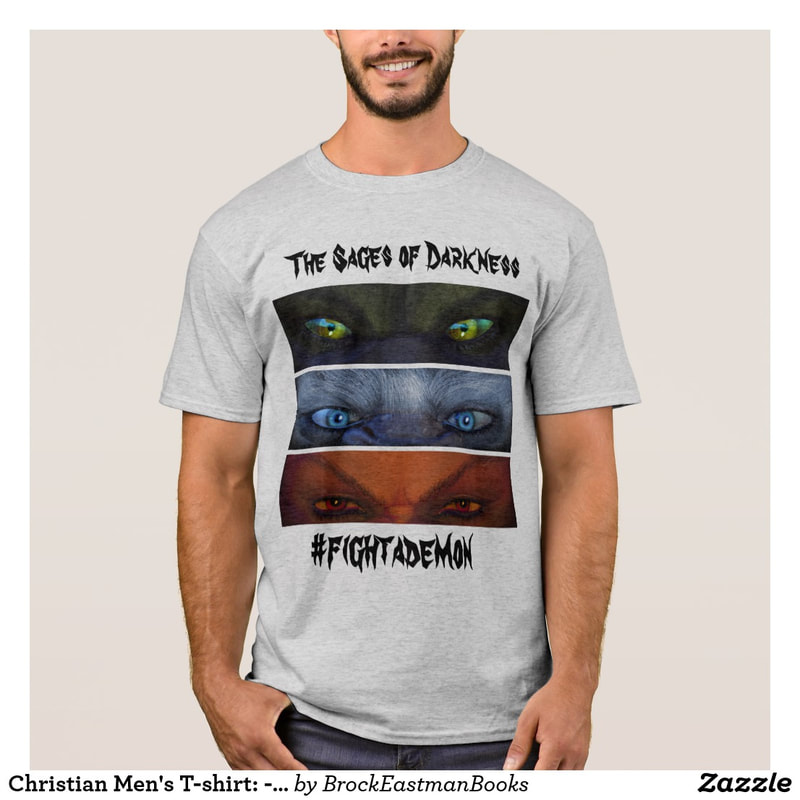

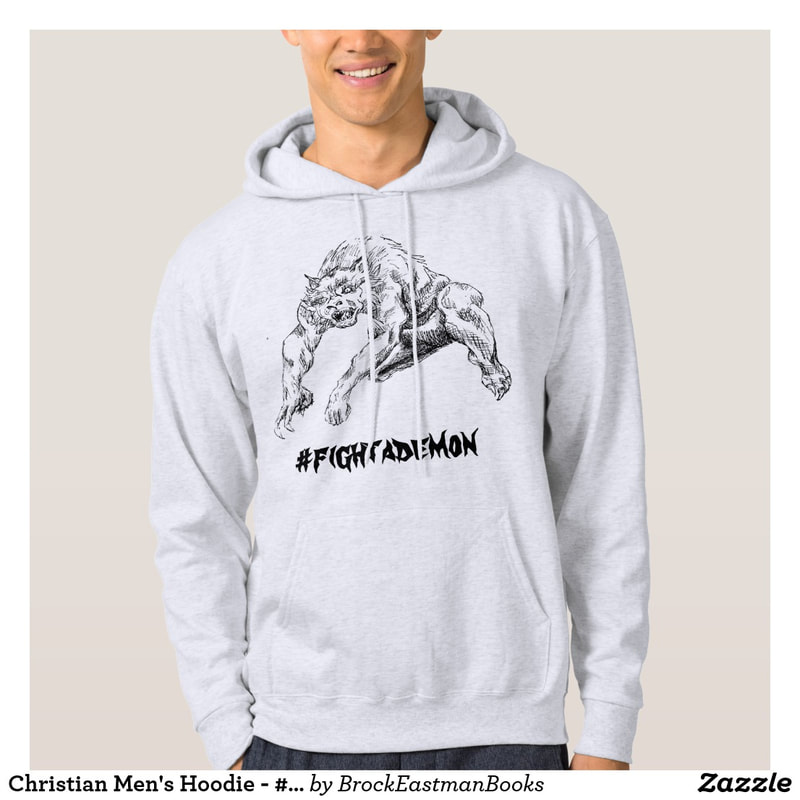

 RSS Feed
RSS Feed